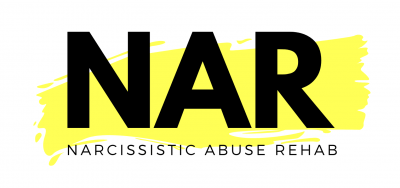Are you ready to reclaim your power and hold narcissistic abusers accountable in a legal setting? Look no further. Our comprehensive guide features expert advice on successfully proving narcissistic abuse and increasing your chances of victory in the courtroom. Due to the insidious nature of this form of interpersonal aggression, survivors often face smears, disbelief, and disenfranchisement. However, knowledge is power, and we have compiled a collection of methods to help you regain control and seek justice. From gathering evidence to building a robust case, we will guide you through each crucial step, ensuring you are well-prepared to navigate the legal system with confidence. Furthermore, we will provide invaluable insights from experts in the field, empowering you to effectively communicate your experience and present a compelling case.
What is narcissistic abuse?
Narcissistic abuse is a form of psychological manipulation and control that is inflicted upon individuals by narcissistic abusers. These individuals have an exaggerated sense of self-importance and a constant need for admiration and validation. They exploit and demean their victims, using tactics such as gaslighting, manipulation, and emotional blackmail to maintain power and control. Understanding the dynamics of narcissistic abuse is crucial in successfully proving it in a legal setting. By familiarizing yourself with the common traits and behaviors exhibited by narcissistic abusers, you will be better equipped to identify and document the abuse.
Recognizing the signs of narcissistic abuse is the first step towards reclaiming your power. Victims of narcissistic abuse often experience a range of emotions, including confusion, self-doubt, and a diminished sense of self-worth. They may find themselves constantly walking on eggshells, afraid to displease their abuser and facing severe consequences if they do. It is important to remember that narcissistic abusers are skilled manipulators who excel at hiding their true intentions and projecting a false image. By educating yourself on the red flags and patterns associated with narcissistic abuse, you can begin to unravel the web of manipulation and take steps towards proving the abuse in a legal setting.
The impact of narcissistic abuse on victims cannot be overstated. Survivors often suffer long-lasting emotional, psychological, and sometimes physical consequences. The relentless demeaning, belittling, and gaslighting erode their self-esteem and leave them feeling isolated and trapped. Victims of narcissistic abuse may experience symptoms of anxiety, depression, and post-traumatic stress disorder (PTSD). These effects can be debilitating, making it difficult for survivors to gather the strength to seek legal recourse. However, by understanding the profound impact of narcissistic abuse, survivors can find the motivation to pursue justice and break free from the chains of their abusers.
Legal challenges in proving narcissistic abuse
Proving narcissistic abuse in a legal setting can be challenging due to various factors. The covert nature of narcissistic abuse makes it difficult to provide tangible evidence, as much of the abuse occurs behind closed doors and leaves no physical scars. Additionally, narcissistic abusers are often skilled at manipulating situations and people, making it hard for the victims to accurately convey their experiences and garner support. These challenges can be disheartening, but with the right strategies and support, it is possible to overcome them and successfully prove narcissistic abuse. Moreover, the mere mention of the term narcissistic abuse in a courtroom can turn the judge and jury against you. So be sure to seek advice on using correct legal language that clearly defines which crimes were committed, i.e. fraud, labor law violations, intentional infliction of emotional distress, battery, etc.
Gathering evidence is a critical step in proving narcissistic abuse. While tangible evidence may be limited, documenting instances of abuse can still be powerful. Keep a detailed journal of incidents, recording dates, times, and descriptions of abusive behaviors. This documentation can serve as a timeline of the abuse and provide credibility to your case. Save any text messages, emails, or voicemails that contain evidence of the abuser’s manipulative tactics. If possible, gather witness statements from friends, family members, or professionals who have observed the abusive behavior. By compiling a thorough collection of evidence, you strengthen your case and increase your chances of proving narcissistic abuse in a legal setting.
“When I’m dealing with a high-conflict personality in law, I take a very mechanical approach,” high-conflict strategist Samantha Drum told The Narcissistic Abuse Rehab Podcast, “I have a burden of proof that I need to show the judge. What evidence do I need to prove to the judge that this person is unreasonable, that they are being ridiculous, and outrageous. What can I give the judge so that they are more likely to rule in my favor.”
Finding support is crucial when dealing with narcissistic abuse and navigating the legal process. Therapy can provide survivors with a safe space to heal and process their experiences. A trained therapist can also offer guidance on coping mechanisms and strategies to manage the emotional toll of the legal proceedings. Support groups specifically tailored for survivors of narcissistic abuse can also be invaluable. Connecting with others who have gone through similar experiences can provide validation, support, and a sense of community. These support networks can help survivors feel empowered and less alone as they embark on their journey to prove narcissistic abuse.
Working with a lawyer experienced in narcissistic abuse cases is essential in successfully navigating the legal system. Find a lawyer who specializes in family law or domestic abuse cases, as they will have the necessary expertise to handle your case effectively. A knowledgeable lawyer can help you understand your rights, guide you through the legal process, and advise you on the best course of action. They can also assist in gathering evidence, preparing your case, and representing you in court. By partnering with a lawyer who understands the intricacies of narcissistic abuse, you increase your chances of making a compelling case and achieving justice.
“I always encourage people to have some form of written communication: e-mails, text messages, or special apps to record as much behavior as possible,” Divorce- and child custody attorney Derek Jacques told The Narcissistic Abuse Rehab Podcast. “Whether it’s by way of putting their phone in their pocket and turning on the video mode or audio recording function. Do pick ups and drop offs in public locations. [The court] wants you to have tangible evidence of the things that are happening.”
Presenting your case in court requires careful planning and strategic execution. When presenting your evidence, focus on the patterns and behaviors exhibited by the narcissistic abuser. Paint a vivid picture of the emotional and psychological impact the abuse has had on you. Emphasize the consistent manipulation, gaslighting, and control tactics utilized by the abuser. Provide specific examples and reference any written or recorded evidence you have gathered. It is important to remain calm and composed throughout the proceedings, as narcissistic abusers may attempt to provoke emotional reactions or discredit your claims. By staying focused and presenting a well-documented case, you increase your chances of successfully proving narcissistic abuse in a legal setting.
Dealing with gaslighting, DARVO, and smear campaigns
Gaslighting, DARVO, and smear campaigns are common tactics used by narcissistic people to discredit their victims and maintain control. Gaslighting is a form of psychological manipulation in which the abuser distorts the victim’s perception of reality, making them question their own sanity and memory. In court, gaslighting usually escalates to the DARVO tactic, which stands for Deny, Attack, Reverse Victim and Offender. This can make it incredibly challenging for victims to prove narcissistic abuse in a legal setting, as the abuser may attempt to portray themselves as the victim or question the validity of the victim’s claims. Overcoming these obstacles requires strength, resilience, and a solid support system.
A smear campaign is character assassination. It is a deliberate and calculated effort to damage someone’s reputation, often carried out by spreading false information or malicious rumors about them. It is a strategic tactic employed by manipulators to undermine the credibility, integrity, or public perception of the targeted person. The purpose of a smear campaign is typically to discredit the person by sowing seeds of doubt and distrust among their peers or the public. When successful, smear campaigns have severe consequences, causing emotional distress, social isolation, and reputational harm to the targeted individual.
It is crucial to trust your own experiences and intuition when faced with gaslighting, DARVO, and smear campaigns. Keep a record of incidents, conversations, and interactions to help you stay grounded in your truth. Seek validation from trusted friends, family members, or professionals who can provide an objective perspective. Educate yourself on gaslighting and DARVO techniques and tactics, as this knowledge will help you recognize when it is occurring and respond effectively. Remember, you are not alone in this battle. Reach out to support groups as well as legal and mental health professionals to help you navigate the challenges of gaslighting, DARVO, and smear campaigns.
Dealing with a narcissistic abuser’s manipulation can be emotionally draining and exhausting. They may attempt to twist your words, invalidate your emotions, or shift blame onto you. It is essential to establish boundaries and limit contact with the perpetrator of the abuse whenever possible. Focus on self-care and prioritize your emotional well-being. Engage in activities that bring you comfort and provide a sense of peace and stability. Surround yourself with positive influences and individuals who uplift and support you. By prioritizing self-care and protecting your mental health, you can better navigate the obstacles presented by escalated narcissistic abuse in court.
The importance of self-care during the legal process
Engaging in self-care is crucial during the legal process of proving narcissistic abuse. The legal proceedings can be lengthy, emotionally draining, and stressful. Taking care of yourself and prioritizing your well-being is essential to maintain your strength, resilience, and focus. Here are some self-care practices to incorporate into your routine:
- Practice mindfulness, prayer, and meditation. Engaging in mindfulness and meditation exercises can help you calm your mind, reduce stress, and gain clarity. Set aside a few minutes each day to focus on your breath and be present in the moment.
- Engage in physical activity. Exercise is not only beneficial for your physical health but also your mental well-being. Engaging in regular physical activity can boost your mood, reduce anxiety, and increase your overall sense of well-being.
- Consider therapy or coaching. Therapy and coaching can be valuable tools for survivors of narcissistic abuse. A trained therapist or certified coach can help you navigate the emotional challenges of the legal process, provide guidance, and offer coping strategies. Regular therapy and/or coaching sessions can provide a safe space for you to process your experiences and emotions.
- Establish a support network. Surround yourself with individuals who support and uplift you. Connect with support groups for survivors of narcissistic abuse to find a sense of community and validation. Sharing your experiences with others who have gone through similar situations can be empowering and healing. Jacques underscores the importance of this step, “Having a support team in place is something I’ve found to be extremely important.”
- Practice self-compassion. Be kind to yourself throughout the legal process. Recognize that you are strong and resilient for taking steps to seek justice. Treat yourself with compassion and understanding, and celebrate your progress along the way.
Conclusion
Proving narcissistic abuse in a legal setting is challenging, so it’s important that survivors know what they are up against so they can stand their ground with confidence and determination. By understanding the dynamics of narcissistic abuse, recognizing the signs, and gathering evidence, survivors can build a strong case and hold perpetrators of narcissistic abuse accountable. Working with experienced professionals, such as specialized therapists and lawyers, provides essential support and guidance throughout the process. Recognizing and overcoming manipulation tactics like gaslighting, smear campaigns, and DARVO requires resilience, self-care, and a strong support system. By prioritizing self-care as they seek justice, survivors can reclaim their power and move toward an abuse-free future.
Resources






